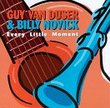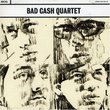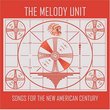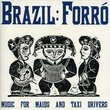| All Artists: Bob Franke Title: Long Roads Short Visit Members Wishing: 0 Total Copies: 0 Label: Daring Records Release Date: 9/9/1997 Genres: Country, Folk, Jazz, Pop Styles: Classic Country, Traditional Folk, Contemporary Folk, Singer-Songwriters Number of Discs: 1 SwapaCD Credits: 1 UPC: 025101303126 |
Search - Bob Franke :: Long Roads Short Visit
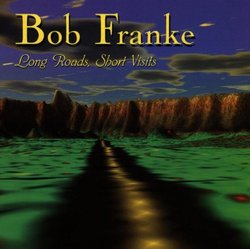 | Bob Franke Long Roads Short Visit Genres: Country, Folk, Jazz, Pop
Bob Franke's 1997 album takes its title from its opening song, "The Roads Are Long in Canada." Strumming an acoustic guitar with a lazy, laidback rhythm, the Boston singer/songwriter croons the melody in a light, breathy b... more » |
Larger Image |
CD DetailsSynopsis
Amazon.com Bob Franke's 1997 album takes its title from its opening song, "The Roads Are Long in Canada." Strumming an acoustic guitar with a lazy, laidback rhythm, the Boston singer/songwriter croons the melody in a light, breathy baritone that stays comfortably within its narrow range. The lyrics describe a spiritual epiphany that occurs while driving across the Canadian prairies one night. The details of this experience are left to the imagination, for Franke is content to suggest the events with phrases such as "It took a night in Canada to recognize your soul, to heal some dark and hollow times." Most of the songs on the album follow this same approach. Whether they tackle romantic betrayal, environmental degradation, a beloved dog, an estranged father, or true love, the lyrics imply more than they describe and are delivered with pretty guitar picking and whispery vocals. Some listeners will find this music the height of sensitivity; others will find it a sure cure for insomnia. --Geoffrey Himes Similar CDs
|
CD ReviewsFlawed but great David A. Bede | Singapore | 02/01/2002 (4 out of 5 stars) "One could argue that there are only two types of songwriters: those who are content to rhyme "arms" with "charms," and those who try to say more in their lyrics. Bob Franke is firmly in the latter camp, but he's not above adding a few "just for fun" songs to his albums. That habit has the unfortunate effect of giving a somewhat inconsistent feel to "Long Roads, Short Visits," but there are diamonds aplenty in this rough. If the goofiness of "Saturn Blues" and "Je T'Adore" wears thin fairly quickly, this collection's stronger songs are more than worthy of Franke's reputation as one of the sharper songwriters in modern folk music.Franke's best songs are odes to self-sufficiency and the more complicated aspects of love, usually with a spiritual perspective. This collection opens with one of his best entries in this specialty, "The Roads Are Long In Canada." Finding rebirth and renewal for his protagonist in a drive across Canada after some hard times, Franke paints an evocative picture of a pleasant loneliness in the surroundings, as a means "to recognize your soul." Other standouts include a re-recording of what may be his most brilliant song, "For Real." Featuring one of the most riveting opening verses ever written, this classic covers a diverse group of people and subjects and makes no effort to tie them all directly together, but touches the listener all the same as a powerful statement on love and life. (The album of the same name, featuring the original recording, has become quite hard to find; and anyway, this is the definitive version.) Elsewhere, "Straw Against the Chill" (another re-recording) chronicles the birth of Christ in a manner that makes it enjoyable to listen to at any time of year, a considerable achievement in itself. "William the Streak" is a pretty tale of a retired racing dog who finds a new career; Franke seems to suggest in the final line that it's meant as an allegory for finding a new lease on life. There are more mundane subjects here too, such as breakups ("There's a Last Time For Everything") and love triangles ("Inland Sea"), but Franke's unique point of view is always present in his writing regardless of the subject. Franke's singing and guitar playing are unlikely to win many awards for technical prowess, but he makes up for it in emotion, as anyone who has seen him in concert can attest. (I, for one, am generally reluctant to criticize any songwriter's ability to perform his or her own songs anyhow.) It's a heavy album to listen to in one sitting, but the emotional ride Franke takes the listener on is worth it."
|

 Track Listings (11) - Disc #1
Track Listings (11) - Disc #1